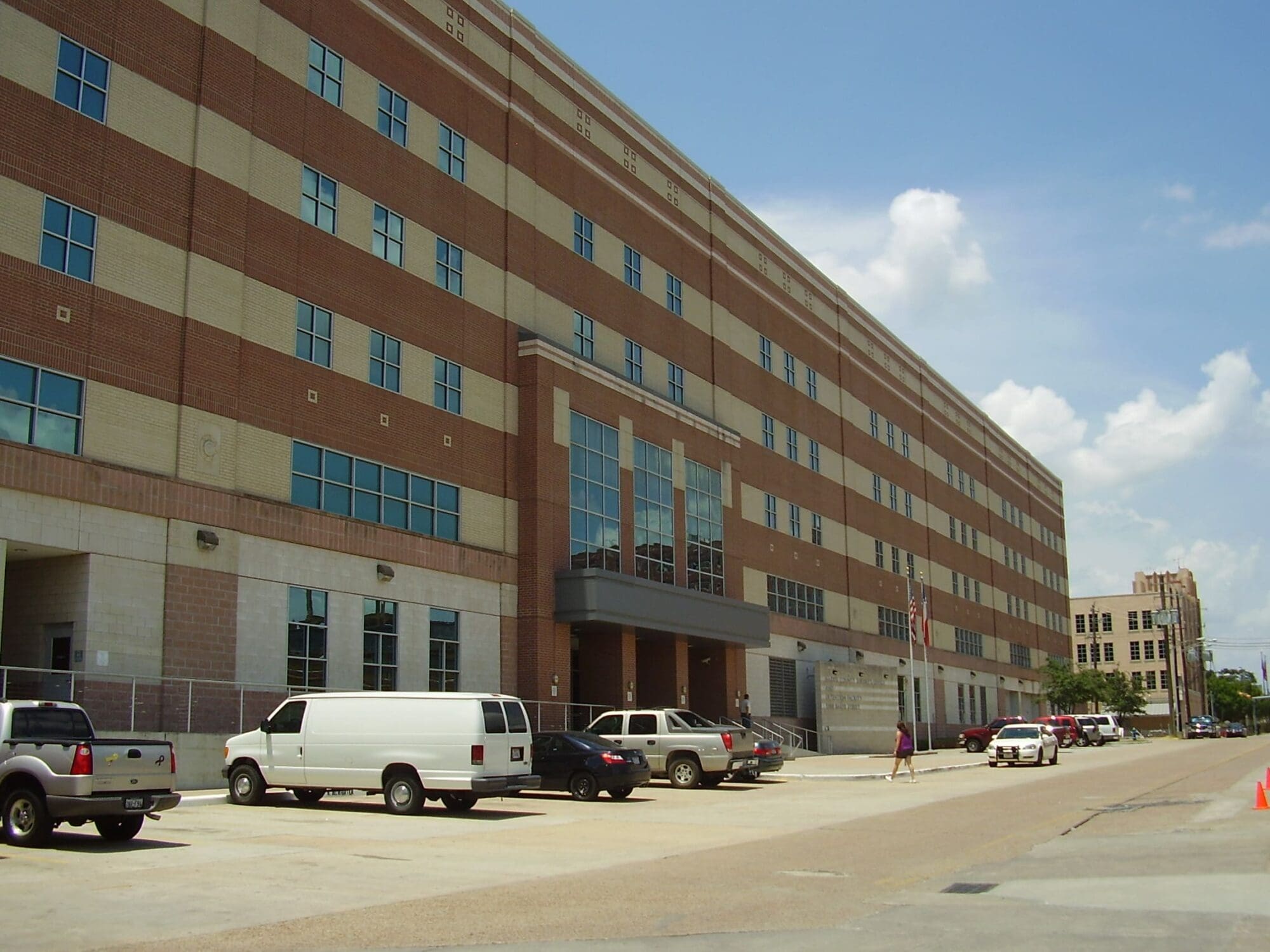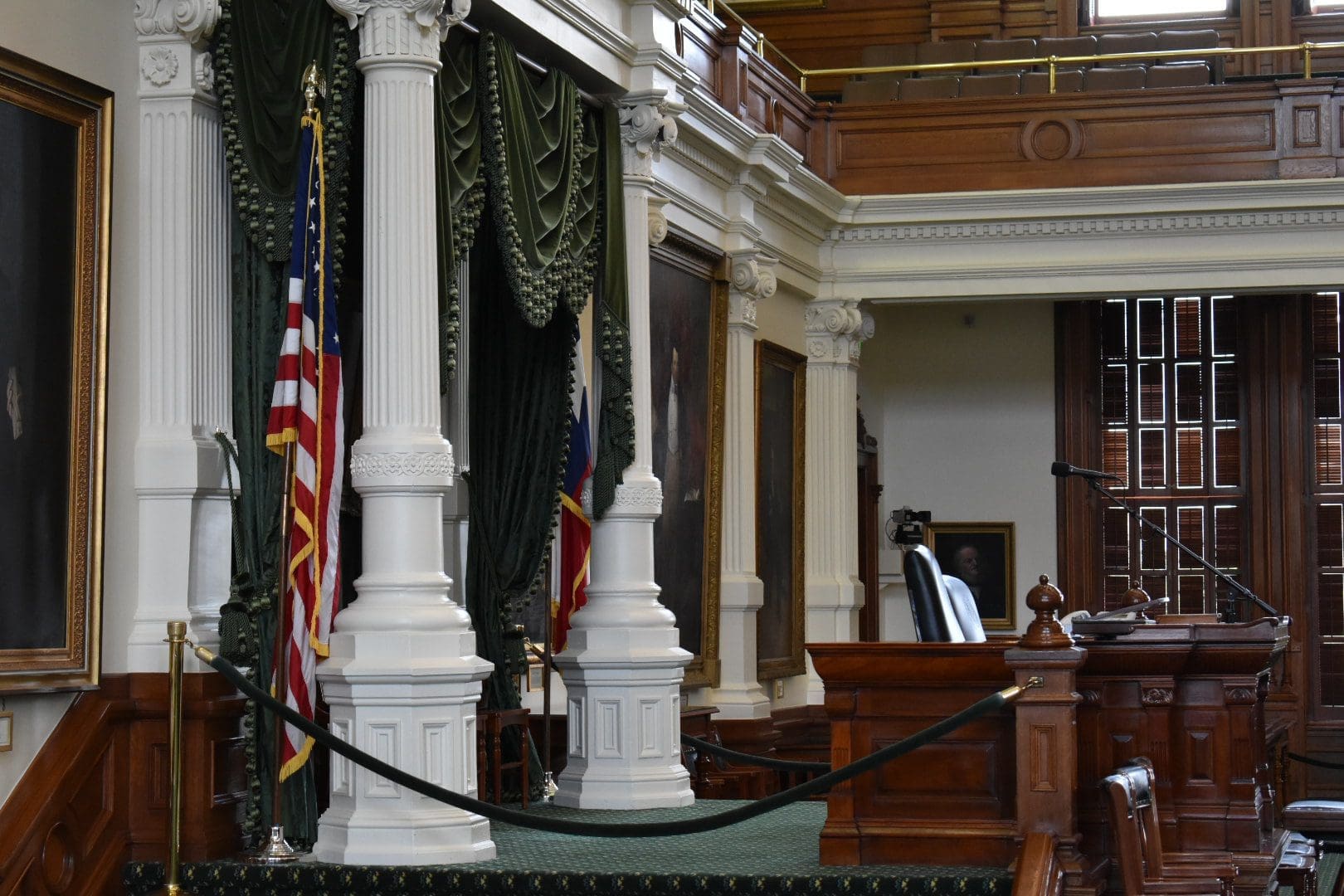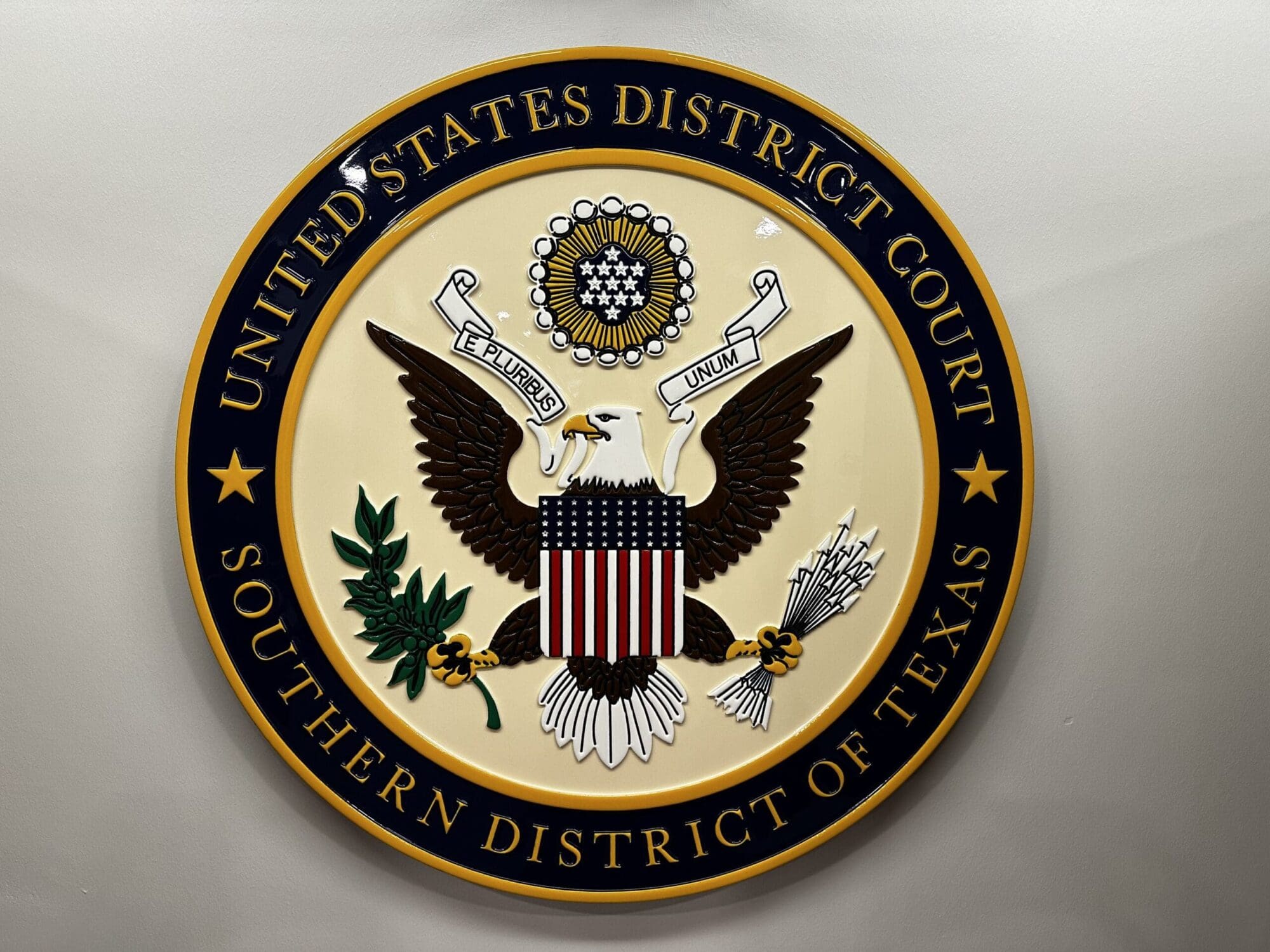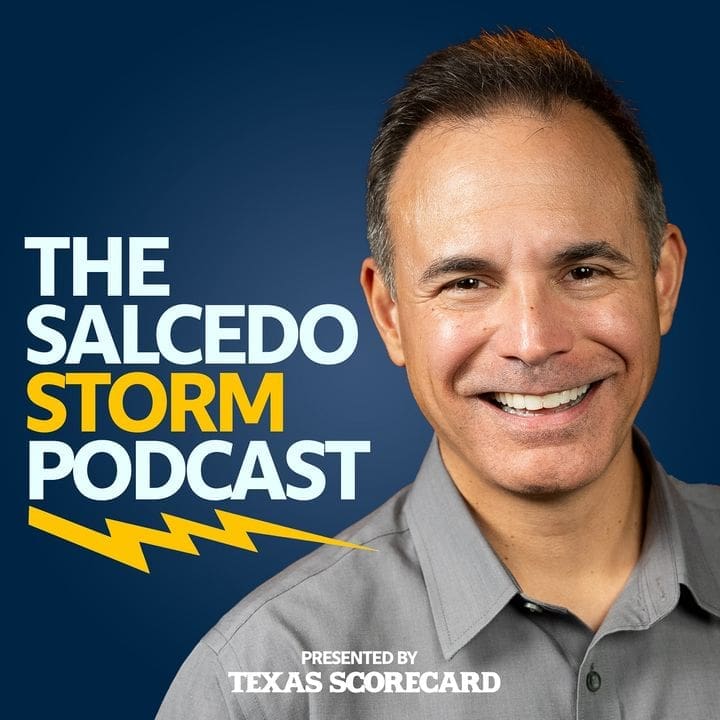Legalizing gambling would be the equivalent of unleashing a neutron bomb on Texas cities and communities. The data shows that gambling breeds crime and addiction, destroys families, ruins lives, closes local businesses, and lowers property values.
Multiple statewide public servants, and at least one big city mayor, are pushing to bring this to your state. A well-funded political action committee poured $2 million into Texas 2022 elections and is spending untold sums on lobbying lawmakers to help make this happen.
Ruin and Misery
“I was right on the verge of killing myself,” 79-year-old Fred L. told Texas Scorecard. His struggle with suicide didn’t come from drugs or alcohol, but a vice Texas’ public servants are openly considering unleashing on Texans.
“I was gambling, uncontrolled, for about 15 years,” Fred explained. “I maxed out 13 credit cards, went through everything I was putting aside for retirement … stole money from my wife, stole some money and a lot of time from my employers, snuck around, cheated, lied about everything.”
Thankfully, Fred didn’t commit suicide. “I couldn’t kill myself without telling [my wife] what I had done to her, how I had destroyed us financially, and how horribly I had affected our future,” he said. “The look on her face was the worst thing I’ve ever seen in my life. It was worse than the day my son was arrested.”
Fred is a member of Gamblers Anonymous in the Chicago, Illinois, area. While in a different state, Fred’s story is not unique to the Land of Lincoln.
Harold Boggs, a marriage and family therapist and certified addiction counselor out of Sugar Land, Texas, has also encountered gambling addiction. He’s found it primarily plagues the poor. “In my experience, more poverty-stricken people are involved in gambling, and it’s really a shame the destruction that occurs and disrupted relationships and lousy productivity,” he told Texas Scorecard. But he has also seen it plague the wealthy, as in the case of one man he treated who lost $100,000 in January.
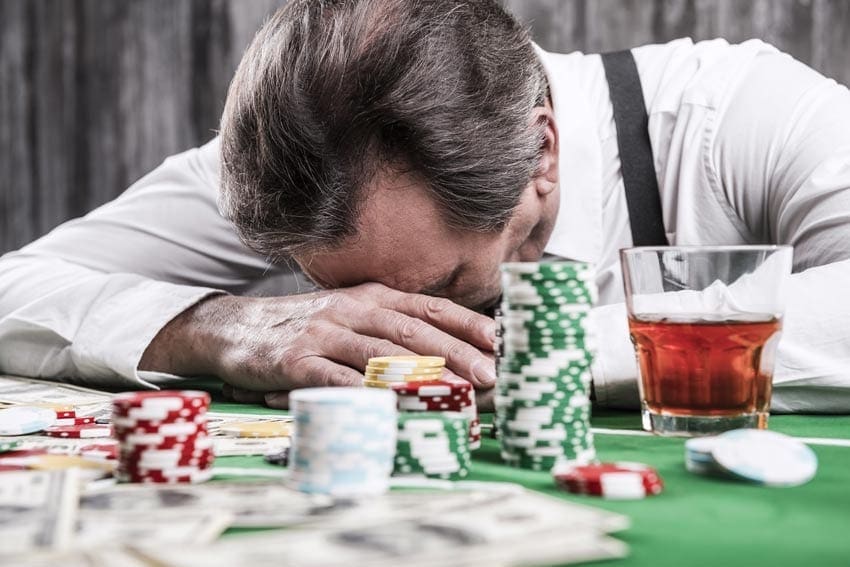
Boggs has 30 years of experience in the field and has worked for the Houston Center for Christian Counseling for the last decade. When asked, he said most of the gambling addicts he had counseled in Texas had bought lottery tickets. Currently, the state lottery is the only legal form of gambling here. The Texas Legislature is currently debating changing this, throwing open the doors to this vampiric virus. It is something that Gov. Greg Abbott (R) has tepidly supported, saying, “That’s something I can be open to.” Lt. Gov. Dan Patrick (R) opposes it.
The risks and moral costs to Texan society should gambling be expanded are not being discussed enough.
“Gambling, porn, alcohol, it’s all the same thing. It attacks the human brain, and when we abstain, it takes different amounts of time for different substances to leave and for the brain to rewire,” Boggs explained. He said brain recovery from alcohol takes about a month, and three months for marijuana. The longest time appears to be opioids, which he said can take 10 – 14 months. Right in the middle of these destructive addictions lies pornography and gambling, which Boggs says takes about five months for the brain to recover from.
This is what Texas’ elected public servants are considering unleashing upon Texans.
Source Documents
Illinois’ public servants have already legalized many facets of this dangerous and destructive societal bomb. As part of its investigation into the societal costs of gambling, Texas Scorecard interviewed Fred and two more members of Gamblers Anonymous in the Chicago, Ill area, as well as Harold Boggs. The GA members requested we withhold their last names.
We also acquired multiple records and studies. From Stop Predatory Gambling, Texas Scorecard obtained copies of the Council on Casinos’ 2013 report Why Casinos Matter, Georgia State University’s Social Costs of Gambling, and the City of San Antonio’s 1994 report Potential Impacts of Casino Gambling in San Antonio. From the Freedom Foundation of Minnesota, we obtained a copy of Professor Earl L. Grinols 2011 Gambling Economics: Summary Facts.
What follows in this investigative report are highlights of what these studies uncovered. Citizens wishing to conduct a thorough deep dive are encouraged to click the links above for the source documents.
The Proposals
Multiple Texas public servants have made pro-gambling proposals that are working their way through the Texas Legislature this session.
Two constitutional amendments have been proposed by State Rep. Jeff Leach (R–Allen) and State Rep. Charlie Geren (R–Fort Worth). Leach’s proposed amendment, House Joint Resolution 102, would legalize sports betting, and his proposed law (House Bill 1942) would regulate it. Geren’s proposed amendment (House Joint Resolution 155) would create eight “destination resorts” across Texas, and create the Texas Gaming Commission to oversee the industry. This appears to have the support of Fort Worth Mayor Mattie Parker. “I would support major economic development opportunities that might include a casino component, absolutely,” she told the establishment-backed Fort Worth Report. It was widely reported in 2021 that Parker’s husband, David, was a lobbyist for casino gambling.
State Rep. John Kuempel (R–Seguin) proposed a law (House Bill 2843) that would create regulations and oversight for casino gambling in Texas.
Broken Lives, Broken Homes

“Casinos are now popping up across the nation, near a shopping mall or a river dock near you, with the full support and sponsorship of the very state governments that only yesterday had outlawed them,” stated the 2013 report Why Casinos Matter. It notes that roughly 15 years before the report was published, the federal taxpayer-funded National Gambling Impact Study Commission called to pause the growth of gambling. “That recommendation went unheeded. Instead, states rushed headlong into legalizing new casinos within their borders.”
With this growth has come the unleashing of a deadly and destructive epidemic upon the American people. “They are affecting our health, our economics, our politics, our ideas, and social values, and perhaps even our sense of who we are as a people and what obligations we have toward one another,” the report stated.
How are they affecting us? One way is that they are creating waves of addicts. According to the Why Casinos Matter report, gambling needs gambling addicts. The report found that “problem gamblers” make up 40 – 60 percent of slot machine revenues, and a Canadian study found “casual players” make up 75 percent of players but are only four percent of net gambling revenue. “Indeed, if casinos had to rely on such casual customers, they would not long survive,” the report stated. “The casinos’ real money comes from problem gamblers.”
Professor Grinols’ Gambling Economics 2011 study reported similar numbers, stating that 30 – 50 percent of gambling revenues come from problem and pathological gamblers.
Modern casinos have mastered the art of seducing people into gambling addiction. It’s important to note that the reality of most casinos is far from the advertised image of these addiction meccas. The reality looks closer to individuals willingly plugging themselves into a type of Matrix. That Matrix is the slot machine: the bread and butter of the modern-day casino. “In 2013, the percentage of casinos’ total gambling revenue deriving from slot machines is estimated at 62 to 80 percent, with racinos (racetrack casinos) getting 90 percent of their take from slots,” Why Casinos Matter reported. Professor Grinols’ Gambling Economics found that 80 percent, sometimes even more, of casino revenues come from slot machines. It also found that slot machines, electronic gaming devices, and video lottery terminals are the “most damaging and quickly addicting form of gambling.”

Why Casinos Matter reports these machines are made to addict you. “Slot machines are designed to get players to gamble longer and lose more over time, or, in the lingo of the trade, to boost REVPAC—revenue per available customer,” the report states. “It gives them small rewards along the way and a sense of winning but ensures that they gradually lose more than they ever win.” The report also notes that Asian-Americans and the elderly are at “high risk for gambling problems.”
“Studies consistently find that people who play slots as their primary form of gambling are more likely to become problem gamblers. According to one well-designed study, they are also likely to experience more rapid onset of gambling addiction than people who engage in more traditional forms of gambling,” stated the report.
Even back in the day, with inferior technology, slot machines were immorally addicting. 63-year-old Cindi of the Chicago, Ill Gamblers Anonymous shared her experience. “I really didn’t even want to play the slot machine, but the tables were full. I put a few dollars in and won a very, very big jackpot. From there, it just became this obsession,” she told Texas Scorecard. “Almost for everybody, you hit a point where you’re chasing your money, and it becomes an escape. It’s like any addiction. You know this is killing you; you know you shouldn’t be doing it, yet you continue to do it.”
Harold Boggs confirmed this is how he sees addictions play out. “People start small, and then it becomes a bigger problem. Responsibilities are shirked, and relationships fail, and the people stop going to work,” he said. “Their mind is just addled. They can’t focus; they have racing thoughts. It gets worse and worse and worse until they wake up and realize I’ve got to stop completely.”
That’s what happened to Cindi. She started gambling around 30 years of age, and didn’t stop until she was roughly 40. She was your average everyday teacher, housewife, and mother. After starting downs this path, she got caught in the trap of addiction. She went to casinos, bought lottery tickets, and at work, she ran all the sports betting pools. Eventually, it got even easier as gambling came closer to where she lived. “The riverboats came to Illinois. Instead of only going to Vegas a couple times a year, now gambling became a 30 minute drive away from me.”
Finally, Cindi hit rock bottom. “I went to the casino, and I gambled one month’s pay. When I was done, I thought about that. That’s when some light went on and said, ‘I cannot keep doing this anymore.’” But the damage had been done, and she had hurt those around her she loved. “I took money from a fund for my son’s college; I maxed out tens of thousands of dollars in credit cards,” she said. “I was one of the fortunate ones. There was equity in my home. I was able to take out the equity and do some paying off of things.”
Neither Fred nor Cindi divorced over their gambling addictions, though Cyndi’s marriage did end later. But they are the exception. Georgia State University’s Social Costs of Gambling notes that the divorce rates among problem and pathological gamblers is “significantly higher” than low-risk gamblers. Pathological gamblers reportedly have a divorce rate of more than 53 percent, while problem gamblers are at more than 39 percent. Low-risk gamblers have a divorce rate of more than 29 percent. Non-gamblers are at more than 18 percent.

Harold Boggs, again drawing upon his experience as an addiction counselor, shared how a gambling addiction can create conflict and threaten a marriage. He worked with a lady whose addiction was so bad, she would have new credit cards issued to her, max them out, and hide statements and overdue payment notices from her husband. “She would take the overdue notices, put them in a shoe box and hide them from her husband. This went on for months and months and months,” Boggs recalled. “I think she said she had eight shoe boxes full of late notices and when her husband finally discovered that they applied some loving pressure so she could get into recovery. They didn’t divorce, but most couples divorce in that situation.”
He noted how in America there is already a single parent epidemic, with 70 percent of homes in big cities are single mother homes. “The social cost is just immense.”
Why Casinos Matter also highlights the threat gambling poses to the institution of marriage and the family unit. “A study of members of Gamblers Anonymous found that upwards of 26 percent have gambling-related divorces or separations,” it reported. “Spouses are harassed by bill collectors and suffer a wide range of stress-related physical and mental problems; they attempt suicide at three times the rate of the general population. Women in such situations are at higher risk for domestic violence.”
Gambling also poses “persistent and wide-ranging” harm to children. The report notes these include parental neglect, financial insecurity, and prevalent abandonment feelings. “Some children have spent hours alone in parked cars or unattended at home while their parents gamble in the casino,” the report states. “Others have lost money, homes, holidays, and the chance to go to college, due to parents’ gambling problems.”
As children are being swept up in the consequences of this epidemic, Cindi is concerned about how gambling is also drawing in the young. “We are seeing it in young men more than anything.”
That, according to Why Casinos Matter, is by design.
Grooming the Young

At a time when multi-national entertainment companies and taxpayer-funded public schools are sexually grooming children, the gambling industry is grooming the young as future revenue resources. It is noted in Why Casinos Matter that Frank Fahrenkopf of the American Gaming Association said, in a 2013 industry report, that the youth are “the very people with whom the future of our business lies.”
In 2013, Why Casinos Matter highlighted results from the first American survey of gambling among young adults and adolescents. It found gambling had already become an epidemic here too. “It estimates that three-quarters of a million young people ages 14-21 are already problem gamblers,” the report states. It was easy to see why. Modern technology has helped create an environment where the young could be made highly susceptible to gambling addiction. “From an early age, kids learn to play games by tapping buttons and tracking images on screens. They spend money with a swipe of a debit card. They play video games. They live on social media,” the report explained. “For these reasons, young people are a soft target for Internet gambling—the next frontier for legalized gambling.”
Shawn, now 24 years old, is an example. He’s also an attendee of the Chicago area Gamblers Anonymous. “Gambling actually started three years ago right when COVID came about,” he told Texas Scorecard. Coincidentally, he said it was legalized just around the time of the government economic lockdowns. His gambling of choice was online sports betting. “You just get hooked instantly. You get a couple nice wins in a row then [that] turns into just repetitive weekly,” he shared in a solemn voice. “You think you’re on top of the world and then all of a sudden, that all comes crashing down and you’re begging, struggling for money, and wasting all your time trying to get back to winning big.”
Apparently, by shutting down businesses and telling people to isolate themselves from each other, public servants in Illinois had created the perfect environment for an addiction virus to spread.
Harold Boggs also noted a correlation between addiction and aloneness. “Recovery is a matter of connecting. Addiction is a process of isolation, and that includes gambling addiction,” he said. Boggs also noted the connection between the ease of availability and addictions. “There’s an exact linear relationship between the availability and the seriousness of the problems people are having.” Similar correlations have been made with pornography addictions.
In gambling, the Texas Legislature is considering a new method of isolation roughly three years after state and local public servants shut down the state economy and ordered Texans to isolate themselves.
When Shawn hit rock bottom, he had gotten himself $15,000 into gambling debts. “I’m struggling pretty hard financially.” He’s also paying a very high personal cost. “I’m known as like a dishonest person now. [It] just has ruined my reputation. My family’s ready to give up on me type stuff.” At the time of the interview, he was one week into his third attempt to break his gambling addiction. It’s gotten so strong, he’s even had to restrict his television consumption. “I’ve just learned that I really can’t watch things on TV, because there’s just way too much advertisement. It’s way too addictive.” He’s also had to cut out some of his young friends from his life, as they too are sucked into gambling. “All they talk about is betting and gambling. It’s just all you hear about from anybody in my age group.”
And yet, sports betting is exactly what State Rep. Leach is proposing to legalize through his House Joint Resolution 102, and House Bill 1942. Why Casinos Matter cautions that this is the opposite of what governments should do. “State regulation of casinos creates a conflict of interest, in which the state is charged with protecting the public from the very business practices that generate revenue for the state and which the state is co-sponsoring.”
Cindi herself is grateful online gambling wasn’t around when she was an addict. “I think that had I had online gambling available, I’d be dead. I would have committed suicide, or gone insane, because it would have just been right there for me.”
Online gambling can also expose the player to another potential life risk. The individual whom Harold Boggs mentioned lost $100,000 in January had played online poker. “He was involved with some very, very bad people,” Boggs recalled. “When you get into those dollar amounts, people want their money. He was really scared.”
As the data shows, crime and gambling are a package deal.
More Crime
With the 2020 “Defund Police” riots still fresh in Americans’ memories, and the recent 2023 violence by those pushing gender mutilation on children, it’s likely the last thing Texans desire is more crime. Considering the joke of law enforcement that Harris County has become, and the Dallas Express’ ongoing reporting of troubling crime rates in the city of Dallas, fighting crime is something that’s in demand, not in overwhelming supply, at the moment.
Yet if Gov. Abbott and the Republican-controlled legislature were to unleash the gambling epidemic on Texans, a crime wave could follow. Professor Grinols’ Gambling Economics 2011 study highlights this danger.
Approximately 9 percent of total crime was because of gambling in counties that had Class III gambling, according to Grinols’ study. It also found gambling responsible for more than 8 percent of property crime and more than 12 percent of violent crime. “For an average county with 100,000 population, this implies 615 more larcenies, 325 more burglaries, 272 more auto thefts, 10 more rapes, 65 more robberies, and 100 more aggravated assaults,” Grinols wrote. The website Real Money Action defines Class III gambling as “traditional ‘Las Vegas’ or ‘casino-style’ gambling. The table games like roulette, blackjack and craps would all fall under Class III, as would the slot machines and video poker games you’d find in any Las Vegas casino.”
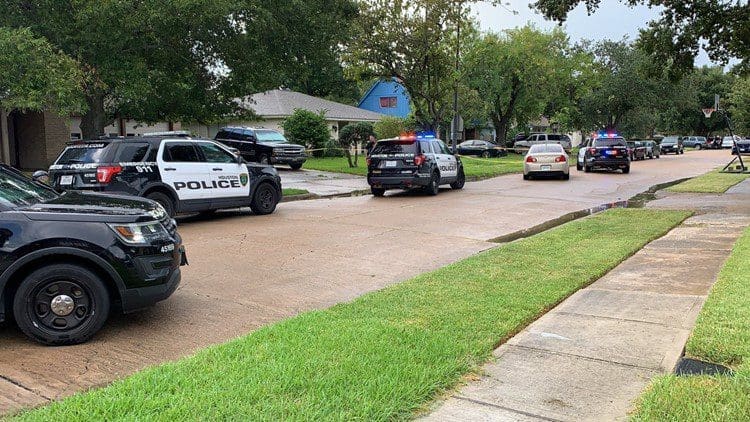
His study also observed gambling had an adverse crime effect on Indian reservations. According to data from the University of Texas, there are three reservations administered by the federal government in Texas.
These crimes are also costly, according to Georgia State University’s Social Costs of Gambling. Fewer than 230 Gamblers Anonymous members have reportedly stolen $30 million, and of close to 400 GA members, 57 percent of them reportedly stole to finance their gambling addiction. The average amount of money or property stolen per person is $135,000.
Crime was one of the red flags the City of San Antonio noticed when they considered gambling. Their 1994 report Potential Impacts of Casino Gambling in San Antonio stated their police department expected a “marginal increase in overall crime indirectly related to casino gambling and its corresponding social impacts.” They forecast that they would have to spend $106,000 in 1994 money to hire two more police officers to compensate. That would be more than $215,000 in 2023 U.S. dollar values. Website MacroTrends shows San Antonio’s population at the time was more than 1.2 million, while today it’s estimated to be roughly double that. Therefore it’s likely that costs to compensate for crime increases would be even higher should state lawmakers legalize gambling statewide, and costs for law enforcement in areas where a casino is built would also likely increase.
“Crime rates drop much more in non-gambling-counties than gambling-counties,” Professor Grinols wrote. “In many areas, casino-county crime rates as a fraction of non-gambling-county rates have increased from 2-25% less before casinos entered to much higher after.”
Not only does legalizing gambling ruin lives and households, grooms the young, and increases crime, but it also destroys the local community.
Local Destruction
Former Texas Gov. Rick Perry’s 2011 re-election campaign declared “Texas is open for business.” It’s a marketing message Gov. Greg Abbott has tried to maintain, despite his 2020 lockdown orders. It’s argued that legalizing gambling would provide an economic stimulus. However, it could end up closing down main street in order to open up gambling streets that would bleed taxpayers even more than they already are.
Why Casinos Matter reported that “casinos typically weaken nearby businesses.” The study provides numbers from the infamous gambling mecca of Atlantic City. Before 1977, you could find 242 food and beverage businesses there. In 1996, 19 years after the casinos came, 41 percent of those perished, leaving only 142. In 2007, the U.S. Federal Reserve “found that even after 20 years of so-called economic development, there is still no large supermarket in the city.” Professor Grinols echoed this sentiment in his work. He cautioned Minnesota citizens that gambling would “lessen” their “local economy.” He also found that gambling failed a cost-benefit test, finding that introducing it in Minnesota would cost $166 per adult, while generating $54 in revenue. “Large costs are privately borne, but 64 percent are publicly borne and 39 percent are tax-supported public costs.”

As local businesses are driven out, though, casinos bring other predators with them to fill the gap. “Evidence suggests that the opening of a new regional casino may offer an economic stimulus to distressed communities, but the stimulus fades over time, as the presence of a casino drives out established local businesses and attracts other gambling-linked businesses, such as payday lenders, pawn shops, auto title lenders, and check cashing stores,” Why Casinos Matter reported.
It should be noted that the study found that pawn shops, check-cashing stores, and “high-interest lending establishments such as payday lenders” were the only local businesses that don’t get harmed by casinos. In fact, they get stimulated. That may not be a good thing for the community. Financial advisor Dave Ramsey, and his company Ramsey Solutions, have cautioned about how payday lenders prey on others. “In case you didn’t know, payday lenders are the scum of the earth,” Ramsey Solutions wrote. “Payday loans are a slippery slope into a debt-building cycle that isn’t easy to escape.”
For the other local businesses that die off, it doesn’t help that public servants give casinos an edge against them. Why Casinos Matter found that these gambling establishments “are given a regional monopoly by the state and gain special legislative exemptions from regulations imposed on non-casino businesses.”
And yet, despite all this, gambling doesn’t create a prosperity nirvana. Why Casinos Matter warned any expected economic boost also, like any addiction, usually ends in a crash. It used the infamous Atlantic City as an example, and a cautionary tale for taxpayers and lawmakers.“Casinos in Atlantic City began as an economic renewal project, but after nearly four decades, the city is still in need of economic renewal,” the report stated. “Despite repeated bailouts by the state and a recent $30 million state-funded marketing campaign, Atlantic City remains an economically troubled place.” The report also found in some states that taxpayers are having to prop up state-sponsored casinos. “When casinos come up short, states usually provide new infusions of money, reduced taxes, reduced funding for gambling addiction measures, or other concessions such as lifting smoking bans, in order to sustain revenues and profitability.”
Texas Scorecard asked Texans for Fiscal Responsibility if there were any safeguards proposed in the state legislature to prevent taxpayers from being on the hook for bailing out casinos. “I don’t believe there’s any safeguards necessarily,” replied Executive Director Jeramy Kitchen. “But we remain concerned with the potential bureaucracy, [that] this would also bring in an expansion of government to manage or regulate this entity.”
There’s also the warning of Texans being given a bait and switch. Those who push legalizing casinos bring visions of grand destination resorts. Why Casinos Matter cautions that promised “regional casinos” are far more harsh than any fantasy visions of Vegas-style high end resorts coming to your neighborhood. “America’s new regional casinos may be called ‘resorts’ by the gambling industry and ‘destination resorts’ by the political leaders who sponsor them, but they are actually quite different from the resort casinos historically located in Las Vegas, Macau, and other higher-end vacation locales,” the report stated. “The traditional Vegas-style resort casinos catered mainly to high rollers and ‘whales’ partial to table games. Today’s regional casinos cater overwhelmingly to middle rollers and low rollers who play slot machines.”
Cindi of Gamblers Anonymous showed another side of what casinos can look like. “In Illinois, we’ve got these small little boutique casinos all over the place.”
Finally, there’s a very clear danger to your home’s value. Why Casinos Matter highlighted a study by the National Association of Realtors. It said the impact of a potential casino on the local housing market is “unambiguously negative.” Research in western Massachusetts, where at the time a new casino was being prepared to be built, homeowners would absorb lost value of $1,650 to $3,300. “The study’s economists estimate that there will also be 125 additional home foreclosures each year, representing $5 million in lost home values.” Such losses are hard to see in any positive light. If such decreases in home value did occur, it’s unlikely that would be reflected in your property tax bill. “I think what we see time and time again, whether it’s casinos or not, is that very seldom do local governments cut spending,” said Jeramy Kitchen of Texans for Fiscal Responsibility. “They would either equalize whatever revenue lost, and find it from somewhere else by increasing the [property tax] rate up to whatever the cap is, or going to the voters [in a property tax hike election].”
The Case Against Gambling
Multiple studies and interviews highlight the societal dangers gambling poses. And as counselor Harold Boggs noted earlier, he’s treated gambling addicts who’ve participated in the state’s lottery.
Gambling is an addiction that threatens our society, and it’s coming after our young. Fred from the Chicago, Ill Gamblers Anonymous shared the tragedy he witnessed at a recent GA meeting. “There were 28 people there. I’d say 15 of them were under the age of 30, and every one of those under the age of 30 was a sports gambler on their phone,” he said. “They have gotten into trouble on their phone, at home, at work in the car, [or] out having a beer with friends. It’s gotten out of control, which is why they come to the meeting.”
Texas Scorecard sent the studies we acquired to Gov. Abbott, State Reps. Leach, Geren, Kuempel, and Fort Worth Mayor Mattie Parker. We asked if they were aware of these studies and the societal risks by legalizing gambling. No response was received before publication.
Some could argue that Texans need gambling and casinos to increase tax revenues. That then leads to the question of if the state has a tax revenue problem. “We do not have a revenue problem but we have a spending problem,” said Jeramy Kitchen. “There are certain communities that are concerned with economic development, and they believe that the amount of money that will very likely come with the institution or policy favorable to gambling, or expanding casinos, would greatly benefit their community. But of course, the problem would be it potentially comes at the expense of other communities.”
As a man who counsels those with addictions, Boggs made his position, and the morality of the situation, quite clear. “Legalizing gambling and legalizing marijuana, I hope it never happens in Texas. It’s ridiculous,” he said. “[Marijuana’s] not a toy. Gambling is really destructive.”
If you or someone you know is struggling with a gambling addiction, you may contact Gamblers Anonymous for help. Harold Boggs also recommends the Houston Center for Christian Counseling. It has locations in Katy and Sugar Land.


